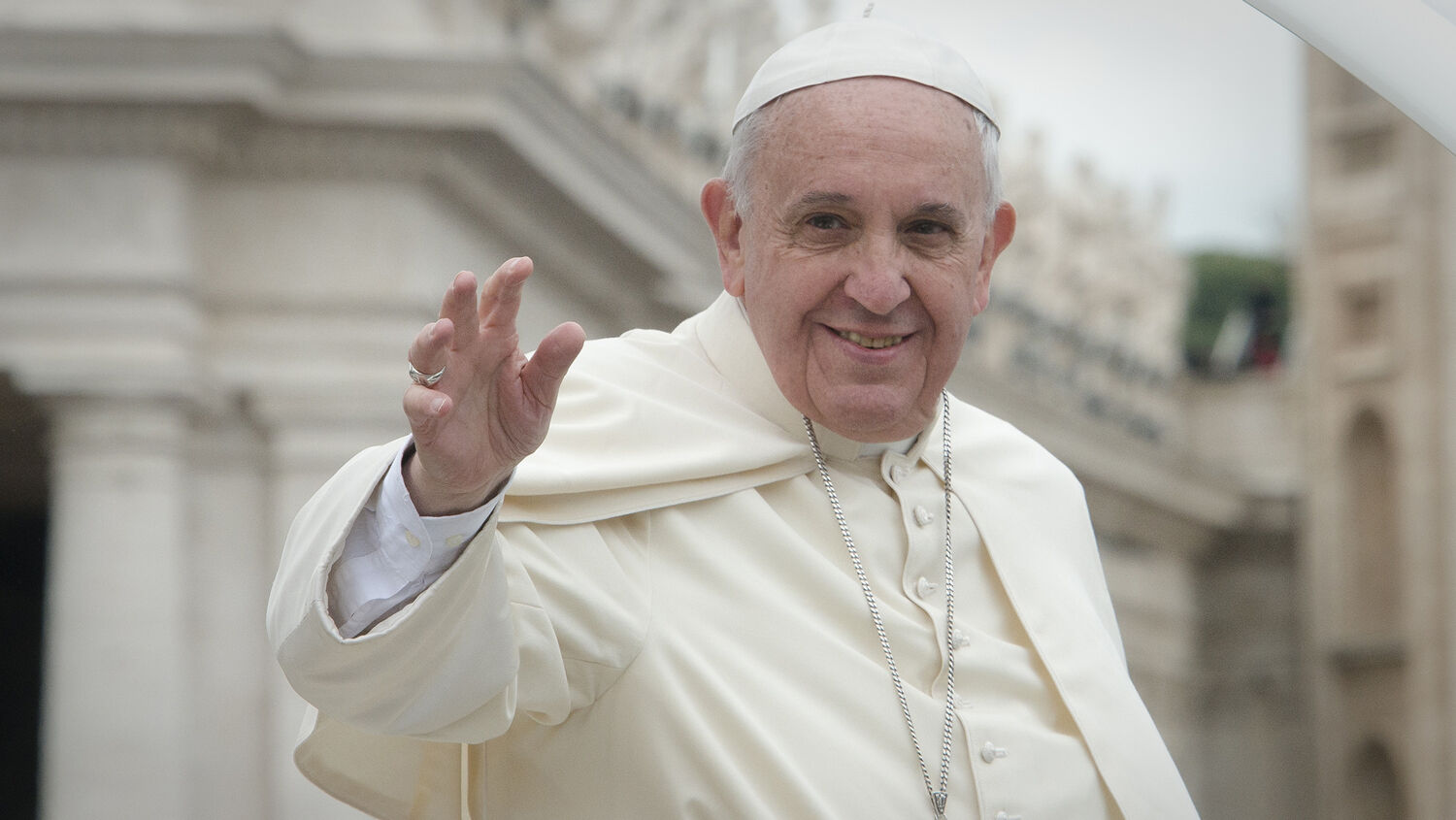
Pope Calls for Global Revolution in TED Talk
Pope Francis brought his call for a “revolution” in the way the world works to a new audience, April 25, in a recorded message at ted’s international conference in Vancouver.
An acronym for “Technology, Entertainment and Design,” ted talks are designed to be short, inspiring speeches. Their popularity has exploded in recent years, particularly among young technology enthusiasts.
ted’s international curator, Bruno Giussani, sought out the pope’s participation, saying, “In this complicated and often confusing world, Pope Francis has become possibly the only moral voice capable of reaching people across boundaries and providing clarity and a compelling message of hope.”
The fact that the organizers reached out to the pope shows his widespread popularity. As the Washington Post wrote:
Pope Francis has gained fans even among the nonreligious for speaking out on issues like poverty, immigration and the environment. According to a Pew Research Center poll, more than 70 percent of people without a religious affiliation view him favorably. He’s also known for his media savvy: He has 10 million followers on Twitter alone, and regularly records videos for specific audiences. But the ted world, with its heavy focus on science and technology, is an interesting choice and signals his willingness to spread his message far and wide.
Time magazine wrote that “while Francis’s technological savvy alone is noteworthy, his ted appearance is another reminder that his true cultural power comes from how he uses new means to advance his message.”
Revolution was at the heart of the pope’s message. He argued that the good inherent within all humans was being held back by evil systems. However, “no system can nullify our desire to open up to the good, to compassion and to our capacity to react against evil”—good urges that “stem from deep within our hearts.”
What’s needed is a “revolution.”
“The third message I would like to share today is, indeed, about revolution: the revolution of tenderness,” he said, in the final section of his speech.
His speech disagreed dramatically with what the Bible teaches about the human heart. But it also continued his push for a new global financial system.
In 2015, the pope published his much-cited encyclical Laudato Si (Be Praised). As we wrote at the time:
Following on from the pope’s earlier criticism of capitalism in his encyclical Evangelii Gaudium (The Joy of the Gospel), it is a subtle bid for much greater Catholic control over the global economy, global politics and even the whole globe in general.
That document was full of the same attacks on our current “system” of government and running the economy. Our article continued:
But it is when Francis gets to the solution of these problems that his letter is most dramatic. Once again, Francis places the blame for both the coming environmental crisis that he foresees, as well as world poverty, on the shoulders of “the current global system, where priority tends to be given to speculation and the pursuit of financial gain.” There is some truth to this—man’s current system is far from perfect—though it ignores the fact that communism has had more than its fair share of environmental disasters and does much less to help the poor.
And the solution? As soon as Francis starts addressing this subject in Chapter 5 of his letter, he calls for a radical new power to be given control in the world.
This is the heart and core of this document’s message—not the global warming debate that has taken up so many newspaper columns. Francis writes that we must think of “one world with a common plan.”
Here he builds on the previous pope’s, Benedict xvi’s, radical call for a “world political authority” in one of his encyclicals.
In his ted talk, the pope brought this same literally revolutionary message to the West’s trendy cultural elites. This time he spoke in more general terms and less about things like “enforceable international agreements” or the “global regulatory norms” mentioned in his earlier document.
But his general message was the same. And judging by the volume of press coverage, it went down well. For more on what the pope is trying to accomplish with his calls for a revolution, read our article “Pope Calls for New World Government.”
